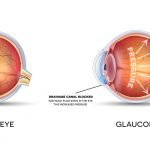For at least some senior citizens, relaxing on the porch with a cup of tea just doesn’t cut it for entertainment — unless that tea happens to be spiked. The results of one of the largest-ever studies of substance abuse recently discovered that a surprising number of older adults enjoy binge drinking a bit too much. In fact, out of 11,000 respondents, 22 percent of men aged 50-64 and nine percent of women in that same age group had indulged in binge drinking in the previous 30 days. Plus, 19 percent of the men and 13 percent of the women drank two or more alcoholic beverages daily on an ongoing basis, which experts consider risky levels. Of those over 65, the binge-drinking numbers came in at 14 percent of men and three percent of women, with at-risk drinking on a daily basis applying to 13 percent of men and eight percent of women. Or as John Belushi said in Animal House, “Toga! Toga! Toga!”
The study, a joint project of Duke University and the National Survey on Drug Use and Health, analyzed results of surveys administered between 2005 and 2006. Binge drinking was defined as consuming five or more drinks in a single sitting. (Toga!) Since the surveys relied on self-reporting and since the brain undoubtedly goes too fuzzy to count after a few drinks, it’s possible that even higher percentages of the nation’s seniors regularly get blotto. No wonder so many elders get into car accidents — and we worry about teens! In fact, research shows that similar percentages of 50-64 year olds binge drink as do adolescents — slightly under 20 percent of those aged 12-20 (although that percentage skyrockets once the kids hit college).
According to study director Dr. Dan Blazer of Duke University, “A surprising number of older Americans are engaging in drinking patterns that are putting their health at risk, yet these problems often go unrecognized. Middle age and older adults may be easy to miss for at-risk or binge drinking because most clinicians are focused on excessive drinking behaviors among young people, such as those in college. [Older adults] often don’t show the typical signs of alcohol dependence.”
Or perhaps, many of those signs are ascribed to other possible causes such as side effects from prescription drugs or diabetes or heart disease.
Interestingly, the data showed that the higher the income, the greater the likelihood of binge drinking. Divorced, separated, or widowed men were more likely to binge drink. In general, men binged more than women did, as did smokers and those who indulged in recreational drugs.
The Duke University researchers expressed concern that heavy drinking poses more of a risk to elderly people than it does to teens, in part because so many older people take prescription medications that may interact with alcohol. Plus, drinking can exacerbate health problems typical among the elderly, such as hypertension, cardiovascular disease, and diabetes, and there’s a much greater chance of broken bones if elderly people fall when drunk. Dr. Blazer comments: “[Older people] don’t metabolize alcohol as quickly, they may be on medications, or they may have some health problems that alcohol may contribute to. On average, if a young person drinks five beers and an older person drinks five beers, the older person is almost certainly going to have more difficulty.”
But there is another side to this story. In contrast to Dr. Blazer’s concerns, another large-scale study a few years ago found that being over 65 doesn’t necessarily mean that drinking will have negative health consequences. That research analyzed drinking patterns of over 13,000 seniors in the US and England, and found that consuming up to two drinks a day usually caused no health problems; in fact, the subjects who had the two drinks a day fared better health-wise than those who didn’t drink at all. The director of that study, Dr. Iain Lang of the Peninsula Medical School, said, “Current guidelines on drinking for the elderly are too conservative, and a couple of drinks a day will do no harm, and will in fact have a more beneficial affect on cognitive and general health than abstinence.” (Toga!)
(On a side note, that study found that heavy drinking among elders in the UK far exceeded the rate in the US, with 10.8 per cent of US men versus 28.6 per cent of UK men exceeding recommended daily drinking limits, and 2.9 per cent of US women versus 10.3 per cent in the UK. But that’s a subject to explore at our next toga party.)
So, to drink or not to drink, that is the question — if you’re over 50. Certainly, it isn’t safe to binge drink and then drive to Bingo, nor is it a good example for the kids. Binge drinking may impair your reputation, your judgment, and your health if pushed to the point where you’re incoherent and unsteady. But enjoying a few glasses of wine daily (as long as you avoid the heavy metals and pesticides) or an evening martini is unlikely to present much of a problem. Essentially, you can choose your study — if you love to drink, go with the UK study and make sure the rest of your health routines are clean and life-supporting. If drinking isn’t essential to your happiness, go with the Duke study, be righteous, abstain, and avoid wearing togas.
In any event, happiness correlates with longevity, and if drinking correlates to happiness for you, perhaps that’s something to consider when evaluating the Duke study and its call for needing far better mental health services for seniors.
:hc











